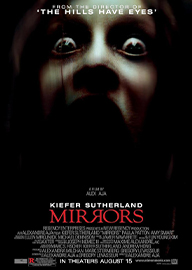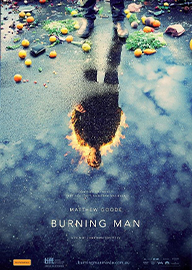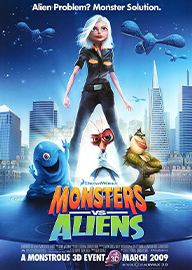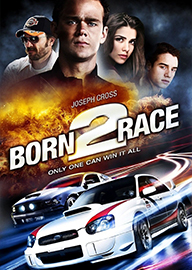부산행 AKA Train to Busan
- 7.6
- Horror
- 1920
- 1h 58m
- 14+
a thrilling South Korean zombie apocalypse film that takes place aboard a high-speed train. Directed by Yeon Sang-ho, the film follows a father and daughter as they struggle to survive a viral outbreak turning passengers into ravenous zombies. As chaos unfolds, the group must find a way to fight off the infected and reach safety. With gripping action, emotional depth, and unforgettable moments, Train to Busan is a standout in the zombie genre, offering a powerful mix of horror, suspense, and heart.













Comments
0Reviews
0Summery
1Please sign in to comment.
Please sign in to review.
Train to Busan (2016), directed by Yeon Sang-ho, is a gripping South Korean zombie thriller that masterfully blends heart-pounding action, emotional depth, and social commentary. This cinematic gem has garnered widespread acclaim for its unique approach to the genre, elevating the zombie apocalypse narrative into a poignant exploration of human nature, survival, and sacrifice. Set primarily on a high-speed train traveling from Seoul to Busan during a sudden zombie outbreak, the film delivers an intense, adrenaline-fueled experience while maintaining a strong emotional core.
The plot follows Seok-woo (played by Gong Yoo), a workaholic fund manager who is reluctantly accompanying his young daughter, Su-an (Kim Su-an), on a train ride to Busan to visit her mother. As the train departs, a mysterious outbreak of a fast-acting virus begins to spread across South Korea, turning passengers into ravenous zombies. The tension quickly escalates as the survivors aboard the train must work together to stay alive and make their way to the relative safety of Busan, where the government is attempting to contain the outbreak. Along the way, Seok-woo and Su-an encounter a diverse group of passengers, each of whom must confront the horrors of the outbreak in their own way.
One of the most striking elements of Train to Busan is its character development. While the film features a multitude of intense action sequences and thrilling moments, it is equally invested in the emotional journeys of its characters. Seok-woo begins as a self-centered and emotionally distant father, focused more on his career than on his relationship with his daughter. His growth throughout the film is one of the key emotional arcs, as he is forced to confront his own vulnerabilities and make selfless sacrifices for the sake of Su-an and the other survivors. His bond with Su-an, which grows stronger amidst the chaos, is the heart of the story, providing a poignant counterpoint to the bloodshed and destruction unfolding around them.
The film’s supporting characters are equally well-developed, adding layers of complexity to the narrative. The young couple, Yong-guk (Ma Dong-seok) and Seong-kyeong (Jung Yu-mi), offer a sense of hope and humanity amidst the horror, with their love and resourcefulness providing a sense of strength to the group. The elderly sisters, who are separated by the outbreak, also bring a tear-jerking emotional element, as their devotion to each other becomes a powerful symbol of familial love and sacrifice. The film’s antagonist, the selfish businessman (played by Choi Woo-sik), serves as a foil to Seok-woo’s character, representing greed and moral decay in the face of disaster. His character arc reveals a critical commentary on how individuals react to extreme situations and how survival instincts can either bring out the worst or best in people.
At its core, Train to Busan is more than just a zombie film—it’s a reflection on the human condition and the lengths to which people will go to protect their loved ones. The film explores themes of selfishness, selflessness, and the instinct to protect one’s family, highlighting the emotional and psychological toll of survival in a world overrun by chaos. The characters' interactions are charged with tension, and their personal struggles make the eventual triumphs all the more rewarding. While the zombies themselves are terrifying, the true horror comes from the human decisions made in the face of catastrophe.
The pacing of Train to Busan is exceptional, with the narrative maintaining a sense of urgency and tension throughout its runtime. The confined space of the train creates a unique setting for the outbreak, heightening the feeling of claustrophobia and isolation. The action sequences are fast-paced and intense, with the zombies portrayed as terrifying, relentless, and unpredictable. The film's use of practical effects and CGI is impressive, creating a sense of immersion that keeps the audience on the edge of their seats. The scenes of zombies charging through the train are particularly heart-stopping, showcasing the frantic energy of the survivors’ fight for survival.
Another standout feature of Train to Busan is its ability to blend horror with moments of levity and tenderness. Despite the grim circumstances, there are moments of humor and lightheartedness that serve to humanize the characters and provide brief respites from the chaos. These moments make the stakes even higher, as the audience becomes more emotionally invested in the characters and their fates. The film also plays with audience expectations, subverting typical zombie film tropes to create unexpected emotional beats and plot twists that keep viewers engaged.
The cinematography in Train to Busan is striking, with director Yeon Sang-ho and his team expertly using the confined spaces of the train to create visually dynamic scenes. The close quarters add to the sense of danger, with characters constantly having to fight for space and security. The use of light and shadow is particularly effective in building tension, creating a constant sense of unease and dread. The film’s dark, moody aesthetic enhances the sense of peril, while the moments of brightness and warmth emphasize the human relationships that remain intact amidst the chaos.
The film’s soundtrack is another key element that amplifies the emotional resonance of the story. The music ranges from intense, pulse-pounding tracks during action sequences to more somber, reflective pieces during the film’s quieter moments. The score underscores the emotional weight of the characters’ experiences, amplifying the tension and drama at just the right moments. The use of music helps to accentuate the film’s dual focus on action and emotional depth, making the stakes feel even higher.
Ultimately, Train to Busan is a masterpiece of modern horror cinema. It transcends the typical zombie genre by offering a compelling story that is rich in character development, emotional depth, and social commentary. The film’s exploration of family, sacrifice, and survival makes it a universal tale that resonates with audiences around the world. Its seamless blend of heart-pounding action, thought-provoking themes, and memorable characters ensures that Train to Busan will remain a standout film in the zombie genre for years to come. Whether you’re a fan of horror, action, or drama, this film offers something for everyone, leaving a lasting impact long after the credits roll.